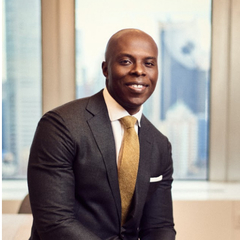Partially spearheaded by the global Coronavirus (COVID-19) pandemic, the IRS has extended the deadline for investors to invest in Qualified Opportunity Zones until the end of 2020. The goal is to encourage investors who may have set on their money during the COVID-19 crisis, or focus their capital into other investments.
What are Qualified Opportunity Zones?
Federal Qualified Opportunity Zones (QOZ), provided a new opportunity and hope for economically distressed neighborhoods across the county. Notably, The federal program was created under the 2017 Tax Cuts and Jobs Act (TCJA) as a means of accelerating economic development and job creation in low-income, economically distressed neighborhoods through the use of long-term private investments.
Currently, QOZs can be found in all 50 states, the District of Columbia and the five US territories based on census tract that was certified by the Secretary of the US Treasury after submission by each state or territory and. New York has 300 OZs across the five boroughs. In Manhattan, a good majority of multi-family townhouses currently on the market in Harlem are in approved QOZs with the potential to provide steady income and substantial returns on a 10-year investment.
What is the Goal of Creating Qualified Opportunity Zones?
Mainly, the program has two goals. The first one is that hopefully, investment in a QOZ will rejuvenate economically struggling neighborhoods and communities. Secondly, provided that the taxpayer invests eligible gain into a Qualified Opportunity Fund (QOF) and meets additional requirements, then the taxpayer is eligible for preferential tax treatment.
While the QOZ program got off to an exciting start, that was, unfortunately, significantly slowed down when the COVID-19 pandemic emerged across the country. As a result, the IRS released several revenue rulings and final regulations in December. However, many questions remained unanswered, causing a good majority of investors to remain cautious about investing in QOZs, thus putting their focus elsewhere.
Particularly, as the global pandemic caused more havoc across the world, may investors focused directly on their primary businesses and/or assets that they were confident could survive the impending recession.
As a result, since early March, the equity market has sharply dropped, and likewise, a decrease in capital gains and asset values, which could have otherwise been invested in QOZs. Naturally, there has also been a freeze of commercial real estate investment.
Since COVID-19 significantly slowed down the momentum of QOZ investing, the IRS has been focused on renewing hope as well as providing relief for investors and through Notice 2020-39, issued on June 4,2020. Part III of this notice extends deadlines for QOZ investors.
Notably, the changes are as follows:
90 Percent Asset Test for QOFs.
Under Section 1400Z-2(d)(1) for 2020, Notice 2020-39 provides that any failure by a QOF to satisfy the 90 percent asset test between Apr. 1, 2020, through Dec. 31, 2020, will be treated as having met the reasonable cause standard for avoiding penalties, automatically. In general, this provision provides additional time and opportunities for QOFs to comply with the 90 percent asset test requirement in the future
180 Day Investment Period.
Notice 2020-39 extended the deadline until Dec. 31, 2020, provided that the last day of the investment period was on or after Apr. 1, 2020, and/or before Dec. 31, 2020. The original deadline set by the IRS was extended from Apr. 15, 2020 to Jul. 15, 2020, due to the COVID-19 pandemic. This extension is key for QOF investors because it removes the 180-day requirement and introduces a year-end deadline, which may spearhead new investments.
31-month working capital safe harbor period has also been extended up to 24 additional months.
The extension applies to all QOZ businesses that held working capital assets meant to be sheltered by the working capital safe harbor before the Dec. 31, 2020, deadline. Overall, this extension provides at least 55 months of flexibility, which was not a part of the original program.
A 30-month substantial improvement period has also been extended by nine months.
Notice 2020-39 ignores the period beginning Apr. 1, 2020, and ending Dec. 31, 2020, for calculating any 30-month substantial improvement period. In other words, the 30-month substantial improvement period is tolled during that time.
12-month reinvestment period of QOFs has been expanded for up to 12 additional months.
Provided that the initial 12-month period was in effect on Jan. 20, 2020.
Overall, with many investors selling assets to survive COVID-19 and the recession, this will present many unique opportunities in the real estate market, particularly in QOZs. Since the majority of businesses were forced to close to comply with stay-at-home orders. As the country slowly begins to reopen, properties available for redevelopment within QOZs will probably become more accessible for investors. If properties within the QOZs are redeveloped by investors, many economically distressed neighborhoods may begin to flourish. QOFs may end up being a vehicle by which investors to help rebuild the areas hard hit from COVID-19 related issues. Thanks to new IRS provisions, investors are allowed to refinance their properties and lease them, making multi-family homes and townhomes among the least risky OZ investments available in New York City, especially in Harlem.
Looking for a smart Opportunity Zone investment in Harlem? Get in touch for assistance with every step of the process. Schedule a call with me here.
Schedule a call with me here if you have any interest in obtaining a complimentary valuation for your home or buyer consultation.
Connect with me on Linkedin or Instagram for more information on the townhouse and multifamily market.
Authored by: Stanley Montfort
To see townhouse inventory, click here.




